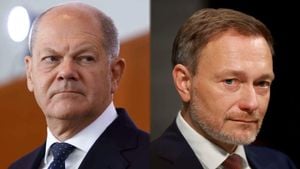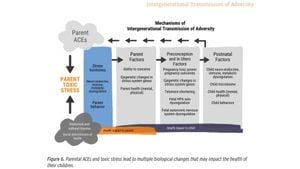After the dismal outcomes of the 2025 Bundestag elections, the Social Democratic Party (SPD) is bracing for significant changes, as party chief Lars Klingbeil has made it clear: the need for reorganization is imperative. Addressing supporters at the SPD election party held at Berlin’s Willy-Brandt-Haus, Klingbeil described the results as nothing short of shocking. "This is a clear message," he stated. "This result will necessitate upheavals within the SPD." His remarks set the stage for the party’s future direction post-election.
Klingbeil, who assumed leadership after the party suffered heavy losses, emphasized the urgent requirement for the SPD to undergo not just reorganization, but also to embrace a generational shift. He asserted, "The generational change must be initiated." This statement reflects his resolve to reinvigorate the party, traditionally seen as the ‘people's party of the left center.’ According to Klingbeil, it is not only about structural changes but also the need to revitalize the SPD’s political program.
Chancellor Olaf Scholz, echoing the sentiments of many within the SPD, acknowledged the bitter defeat and took responsibility. "We must move forward together from this disappointing result," Scholz remarked, but refrained from discussing any personal resignation or stepping down from leadership roles. Instead, he indicated his commitment to remain resilient and face the challenges head-on. Observers note his refusal to step back reflects his determination to lead through this turbulent period.
Meanwhile, responses from other political figures have underscored the mixed sentiment across Germany following the elections. Friedrich Merz, the CDU candidate who celebrated his party’s success, called for unity to form a stable government. He stated, "Now it’s time to find commonalities and quickly establish a functional government for Germany.” This calls for political cooperation at a time when the SPD struggles to assert itself effectively.
The political atmosphere was equally jubilant among the Alternative for Germany (AfD), with leader Alice Weidel proclaiming the results as "grandioses Ergebnis" (a grand result) for her party. With projected gains reflecting roughly 20 percent of the vote, Weidel's confident attitude showcased her party's expanded influence. "Our hand is extended to form constructive governance," she assured, urging collaboration from CDU leaders.
Against this backdrop of shifting political fortunes, SPD General Secretary Matthias Miersch lamented the scale of the defeat, labeling it "a historical loss for the SPD." He openly acknowledged the need for the party to reassess its priorities and reconnect with its base. "We are experiencing a historical defeat," Miersch stated. His comments underline the gravity of the situation and the urgent need for the SPD to reclaim its narrative.
The ramifications of this election extend beyond just the SPD. The FDP, facing its own crisis after struggling to meet voter expectations, saw its leader Christian Lindner hinting at potential political withdrawal. Lindner commented on the party’s missteps over the past year, saying, "We failed to convey our successes within the coalition." If the FDP fails to secure its place, Lindner suggested he would resign from political life altogether.
Overall, the 2025 Bundestag election results have laid bare the need for significant introspection across various parties. Klingbeil's call for the SPD to climb back from the brink of irrelevance signifies more than just his leadership; it is indicative of the larger demands from the electorate for restored trust and effectiveness. The melted confidence of traditional social democratic values is prompting questions about the future of the SPD as it aims to restore itself as the premier leftist party. The challenge will be great, but Klingbeil's leadership is set against expectations of major developments and shifts within the SPD.
While the SPD grapples with its identity and role, the demand for change resonates across the political spectrum. Parties like the CDU and AfD are capitalizing on SPD's vulnerabilities to anchor their dominance in the political narrative. The call for great change is echoed by leaders who need to establish functional coalitions capable of addressing pressing national issues.
To summarize, the immediate future for the SPD appears fraught with challenges yet encompasses the potential for revitalization. The necessity for internal changes as outlined by Klingbeil is not merely about overhauling leadership but aiming for deep-rooted, philosophical reconnections with the electorate. The survival of the SPD as Germany's left-center party may depend on how well it maneuvers through this political upheaval.



